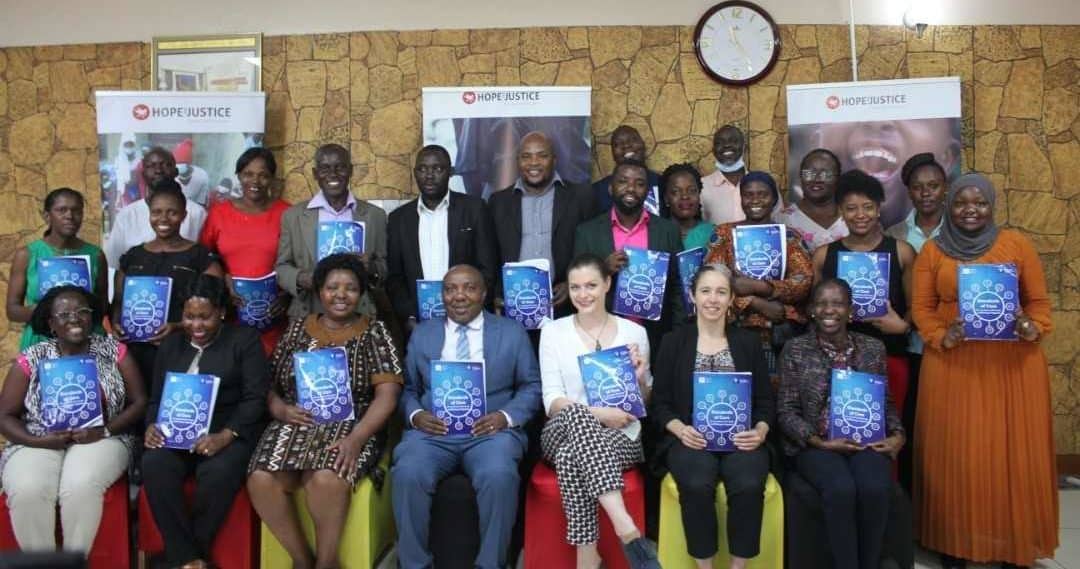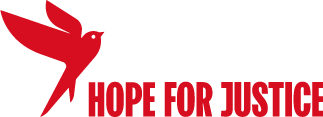Upgrade for Uganda in 2022 Trafficking in Persons Report
This article is reprinted from its original location at Hope for Justice‘s website. It was pulled from their RSS feed for your education.

Hope for Justice has welcomed the progress made by Uganda in fighting human trafficking, reflected in it being upgraded to a Tier 2 country in the latest Trafficking in Persons (TIP) report from the U.S State Department's Office to Monitor and Combat Trafficking in Persons.
This means that, although Uganda's government does not yet fully comply with the minimum standards of the 2000 Trafficking Victims Protection Act, it is making significant efforts to do so. The new tier ranking means Uganda is no longer in the Tier 2 Watchlist category.
This progress is hugely important because, as our work on the frontlines in Uganda is showing, child trafficking in the country is on the rise and improved policy responses are vital.
The Hope for Justice team in Uganda is pleased to have played a part in this progress. The TIP Report specifically references work we are doing in partnership with the Ugandan government to collaboratively develop trauma-informed standards of care for survivors of trafficking.
More widely, under our Reforming Society pillar, we are part of of Uganda's National Taskforce Against Trafficking in Humans and the National Child Protection Working Group. These groups sit under the Ministry of Internal Affairs and the Ministry of Gender, Labour, and Social Development. Through our evidence-based advocacy, we have helped the government to improve its identification and prevention efforts.
What is the Ugandan government doing to stop human trafficking?
The 2022 Trafficking in Persons report highlights recent inroads the Ugandan government has made towards tackling human trafficking and modern-day slavery. These include:
- Identifying more trafficking victims through greater use of the National Referral Guidelines for Management of Victims of Trafficking in Uganda, and referring more of them into protection services
- Investigating and prosecuting more trafficking crimes
- Convicting the most traffickers ever reported in a single year
- Enacting new employment regulations to support the ethical recruitment of Ugandan migrant workers, and investigating and suspending recruitment companies engaging in fraudulent and exploitative activities
- Developing standardised operating procedures for law enforcement and increasing training on trafficking for investigators and prosecutors
There is still work to be done. The TIP report notes the need for more shelters and specialised services for trafficking victims, and recommends that the government partners with, and funds, NGOs that are providing victim care. With our three Lighthouses in the country at full capacity in recent months, this need is especially apparent to the Hope for Justice team in Uganda. While the government has increased its efforts to prevent human trafficking, the current social and economic conditions in the country are making more people vulnerable to exploitation.
Why is trafficking in Uganda on the rise?
An increase in the number of child victims of trafficking in Uganda has been noticed not just by our team, but also by Agnes Igoye, the Deputy National Coordinator Prevention of Trafficking in Persons at the Directorate of Citizenship and Immigration Control, and Damon Wamara, Executive Director of the Uganda Child Rights NGO Network.
“We are already see rising cases of parents who are pushing their children into domestic slavery [and] a surge of early child marriages,” according to Wamara. He said the key drives of this were social and economic conditions, triggered by the outbreak of Covid-19.
Uganda began its first national lockdown in March 30th 2020, with restrictions easing on 21st July, and its second from June 18th 2021 to 31st July. Although these measures succeeded in curbing the spread of Covid-19, they had a significant effect on the economy. With businesses closed, people's movement restricted, and international tourism halted, many people lost their jobs or saw a drop in their household incomes. Research done with 425 households in two slums in Kampala found that 86% saw a fall in their daily income in wages, 63% lost their job, and 71% had limited access to food.
Even when businesses were able to reopen after the lockdowns, their revenue levels struggled to recover, meaning unemployment and poverty have remained high. At the same time, an ongoing drought has hampered food supplies, exacerbating inflation. So, what little money some families now have is able to buy less than it once did. All of this makes communities and families increasingly vulnerable to trafficking and exploitation.
Those risks are falling particularly on children, partly because Uganda had the longest period of school closures to prevent the spread of Covid-19 of any country in the world – 22 months. In the same study in Kampala, 77% of households saw disruption to their child's education, and the researchers described an increase in child labour, child sexual exploitation, and early pregnancies as a result.
Traffickers were able to take advantage of the fact that children were unable to attend school and wanted to help bolster their family's income. Tragically, for the many children who have permanently dropped out of education, their vulnerability to exploitation will long outlive the lockdowns.
You can help support victims of trafficking in Uganda
The Ugandan government has taken great strides towards identifying victims of trafficking, and bringing to justice those responsible. But with the social and economic conditions in Uganda threatening this progress, we need more than ever to be raising awareness of modern-day slavery in communities and empowering them to take action against it, supporting at-risk families to generate sustainable incomes for themselves, and working with schools to help keep children in school. As the Trafficking in Persons report described, organisations supporting victims of trafficking in Uganda need greater support, especially as the number of victims increases.
With your support, we can help keep children and communities safe from trafficking and give each one of the survivors in our Lighthouses the chance of a brighter future that they deserve.
This “Eyes on Trafficking” story is reprinted from its original online location.
 ABOUT PBJ LEARNING
ABOUT PBJ LEARNING
PBJ Learning is a leading provider of online human trafficking training, focusing on awareness and prevention education. Their interactive Human Trafficking Essentials online course is used worldwide to educate professionals and individuals how to recognize human trafficking and how to respond to potential victims. Learn on any web browser (even your mobile phone) at any time.
More stories like this can be found in your PBJ Learning Knowledge Vault.
EYES ON TRAFFICKING
This “Eyes on Trafficking” story is reprinted from its original online location.
ABOUT PBJ LEARNING
PBJ Learning is a leading provider of online human trafficking training, focusing on awareness and prevention education. Their interactive Human Trafficking Essentials online course is used worldwide to educate professionals and individuals how to recognize human trafficking and how to respond to potential victims. Learn on any web browser (even your mobile phone) at any time.
More stories like this can be found in your PBJ Learning Knowledge Vault.

